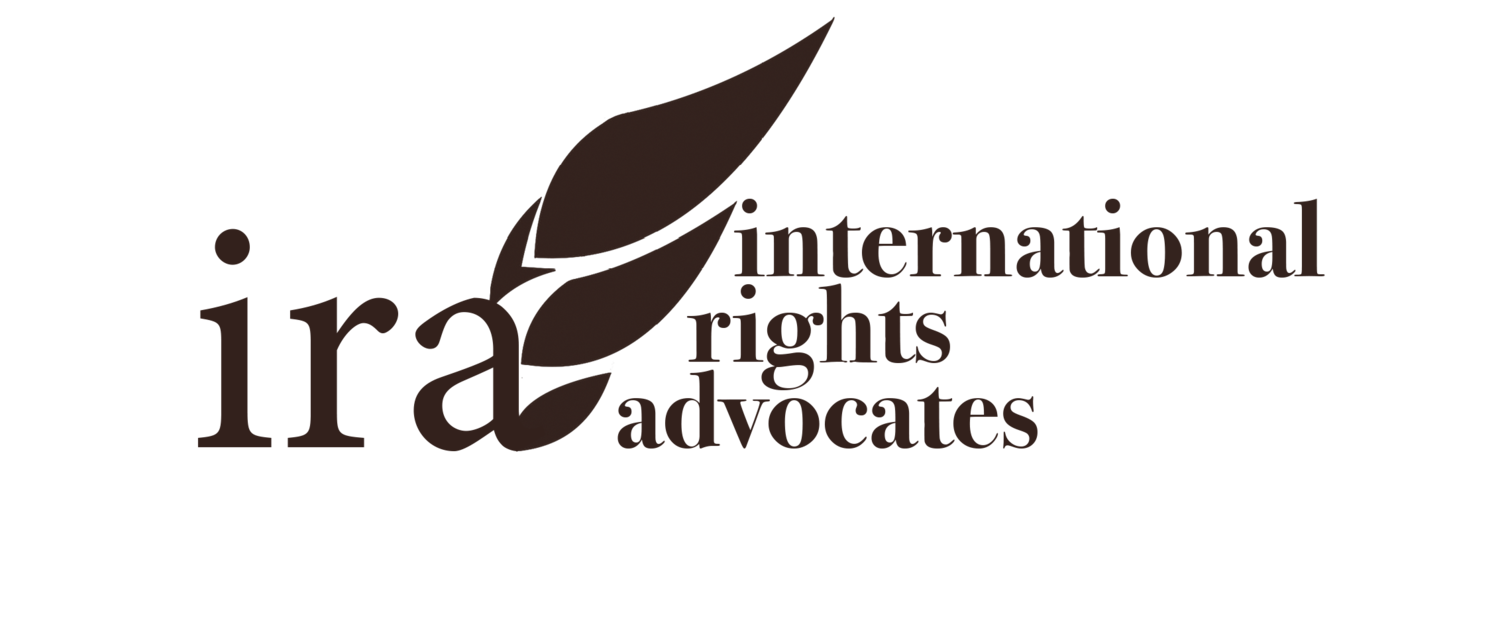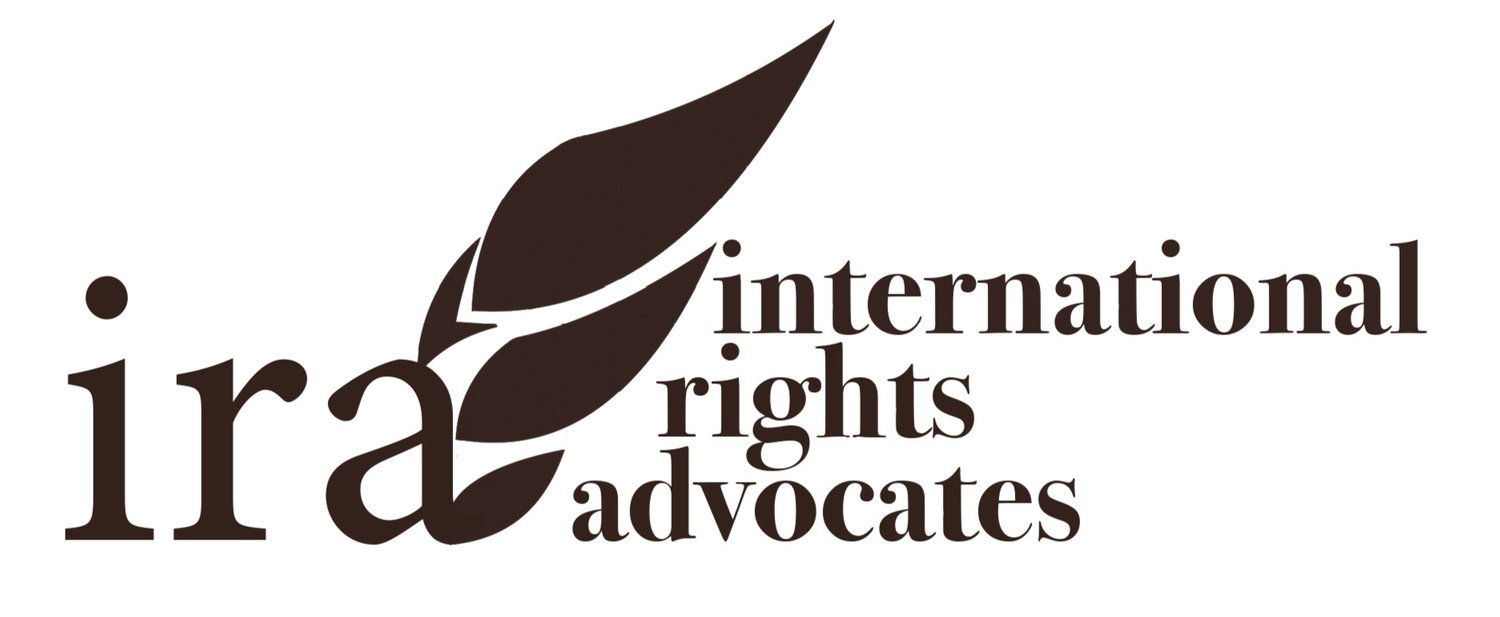Easter Chocolate Redemption
By Terry Collingsworth, Executive Director of International Rights Advocates
Easter is a celebration of redemption and rebirth. As per tradition, this Easter was once again the biggest day for chocolate sales in the U.S. Unfortunately, despite efforts by human rights defenders to expose this reality, the big chocolate companies, including the brand names Nestle, Mars, and Hershey that sell most of the chocolate Easter bunnies and eggs that our children will enjoy, continue to harvest cocoa using child labor, many of whom are trafficked, to harvest their cocoa in Cote D’Ivoire and Ghana. These countries collectively supply over 70% of the world's cocoa, and most of it is tainted by the use of child slaves. If you find that hard to believe, and I hope you do in the year 2023, a U.S. Department of Labor-funded study by the University of Chicago, released in October 2020, found that there are 1.56 million children harvesting cocoa in West Africa. Here are some of the kids we’ve met:
Furthermore, the study found that 95% of the kids are performing hazardous work. The children that almost certainly harvested some, if not all, of the Easter candy in our grocery shelves were required to use machetes to cut down and open cocoa pods and apply dangerous pesticides and herbicides without any protective equipment. Not only do the big cocoa companies know about the horrific abuse of children in their supply chains, but they’ve also made significant efforts to delay resolving it in any way or eliminating it. For example, after child slavery in their supply chain was widely exposed, to avoid proposed legislation to ban the importation of their cocoa, the companies signed a "voluntary" initiative in 2001.
The initiative, called the "Harkin-Engle Protocol," is a pledge by the big cocoa companies to work together to end child labor in their cocoa supply chains by 2005. The Protocol is an admission that the companies know children are harvesting their cocoa and a specific promise to stop using the child labor they could no longer deny. The major chocolate companies signed the Protocol, and it beautifully served their purposes -- they appeared to be doing something to end child labor but could keep profiting from cheap cocoa harvested by children until they met their self-imposed deadline. Instead of ending child labor, the companies have unilaterally extended their deadline three times and now claim they will "reduce by 70%" their use of child labor by 2025. The companies have thus given themselves permission to use child labor to harvest cocoa for your consumption until they are ready to end this horrific but highly profitable practice.
On February 12, 2021, eight formerly enslaved children who were trafficked from Mali and forced to harvest cocoa in Cote D’Ivoire filed a federal lawsuit under the Trafficking Victims Protection Act. They sued the major chocolate companies that signed the Protocol and essentially control the cocoa supply chain: Nestle, Cargill (a large producer of cocoa that sells to Nestle and others), Hershey, Mars, Mondelez (which makes Cadbury and Toblerone), Barry Callebaut (which produces KitKat and Dairy Milk), and Olam (which sells cocoa to chocolate companies). International Rights Advocates, which has an earlier case against Nestle and Cargill that was argued in the Supreme Court in December 2020, is their counsel. The companies have proven they won't stop abusing children until they are forced to do so. Indeed, the University of Chicago study found that child labor has increased since 2015. Chances are good for a legal victory, but the wheels of justice grind slowly. These companies will spend millions of dollars on lawyers and public relations firms to delay justice and continue misleading the public. The companies must view having a steady source of cheap cocoa harvested by children as very profitable if they are willing to spend millions to protect the current system rather than simply fix the problem as they promised twenty years ago.The reason why “deny and delay” is a realistic option for the companies is that they know that most consumers of their chocolate either don’t know, are actively lied to by the companies they trust, or don’t see child slavery as a priority in their purchasing decisions. These companies are unredeemable because they profit from child labor and abuse the trust most consumers place in "name brands."
Now that you know, do you want to be an active participant in a chocolate supply chain that depends on the exploitation of 1.58 million African children? If your children understood this, would they urge you to be kind to the children you are linked to each time you buy chocolate from these big companies? Easter is the perfect time to experience personal redemption and end your support for a cocoa supply chain that starts with the massive exploitation of African children and ends with you, the consumer.
Tell the companies you won't buy their chocolate until they keep the pledge they made in the Protocol in 2001. Don't worry, you can still enjoy excellent Easter chocolate produced by ethical companies listed at www.SlaveFreeChocolate.org. This season and next, let us celebrate redemption and rebirth by making a conscious choice to support ethical chocolate companies and reject the products of companies that profit from child labor and exploitation. Together, we can make a difference and create a world where all children are free to enjoy their childhoods and pursue their dreams.


